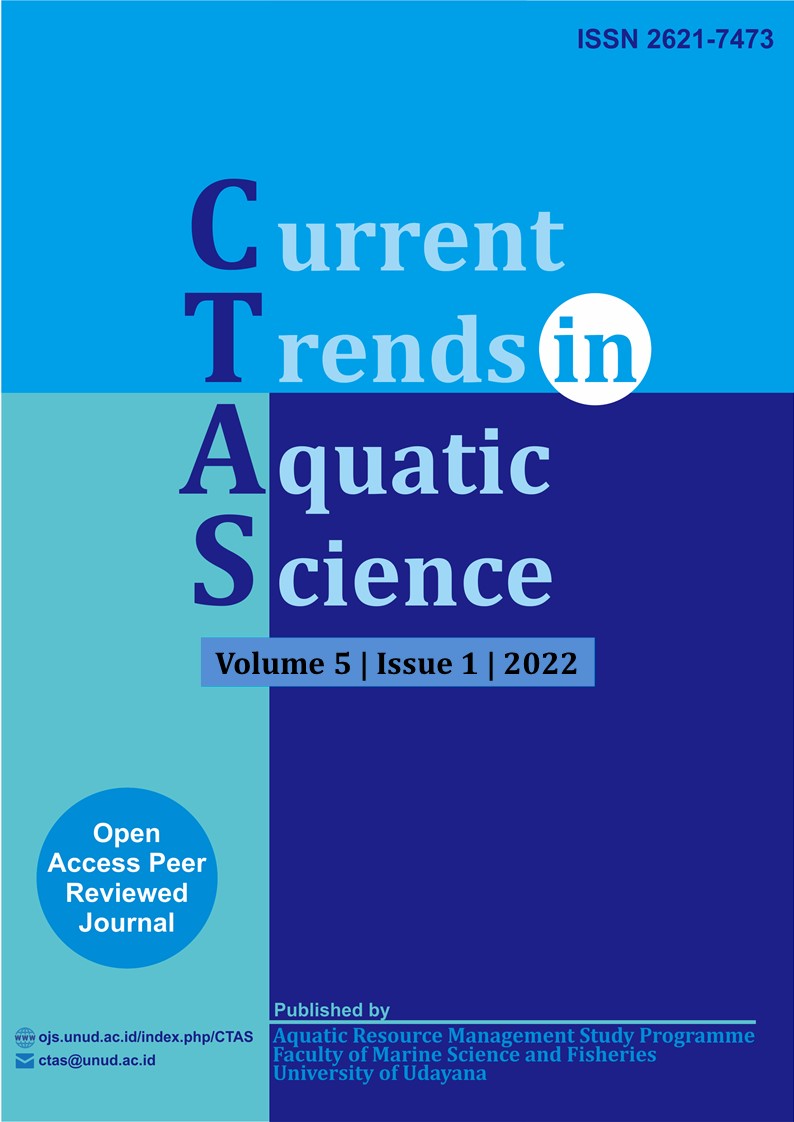Pengaruh Derajat Keasaman (pH) terhadap Pertumbuhan Bakteri Toleran Kromium Heksavalen dari Sedimen Mangrove di Muara Tukad Mati, Bali
Abstract
The acidity (pH) is an important factor in bacterial growth, this affects the high and low density of the bacteria produced. The minimum and maximum pH values for bacterial growth are generally 4-9, but the optimal pH ranges from 6.5-7.5. This research aims to determine the effect of pH on the growth of hexavalent chromium or Cr(VI) tolerant bacterial isolates from mangrove sediments in Muara Tukad Mati. This research was conducted at the Laboratory of Fisheries, Faculty of Marine Affairs and Fisheries, Udayana University in March 2021. The method used in the research was the experimental method by giving four different pH treatments, namely pH 3, 5, 7, and 9. The stages of the study included preparation of the research sample, creation of growth media, preparation of inoculum, and measurement of growth of bacterial isolates, then analyzed descriptively in the form of pictures and graphics. It is known that the five bacterial isolates can grow well in a pH range of 5-7. Bacterial isolate A reached the optimal value at pH 7, while bacterial isolate B, C, D, and E reached the optimal value in the pH range 5-7. Based on the range of pH values in the growth media, the five bacterial isolates were included as acidophilic microbes that were able to live at pH 5 and mesophilic microbes that were able to live at pH 5.5-8.0.


